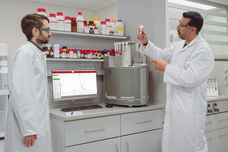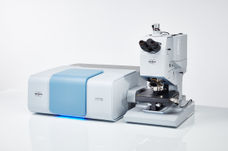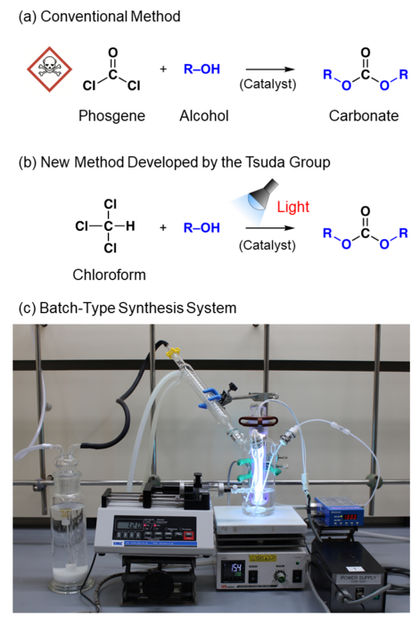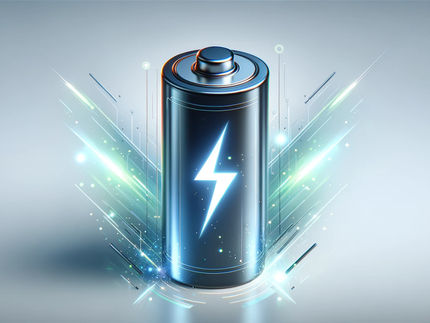Surrey research group wins grant to develop new low-cost fuel cells
An energy materials research group in alkaline polymer fuel cells lead by Dr John Varcoe at the University of Surrey has been awarded £292k by the EPSRC to develop new low-temperature fuel cells which could lower the cost and increase the operation times of batteries used in everyday gadgets such as mobile phones and laptops. The EPSRC award to Surrey forms part of a larger £1.4m award to four UK universities.
Currently most fuel cells use acidic polymers and therefore need platinum electrocatalysts to work. Dr. Varcoe's research will investigate the possibility of using alkaline (hydroxide ion conducting), rather than acidic, polymers which may enable the use of metals other than prohibitively expensive platinum in their electrocatalysts.
Research in this area follows on from earlier University of Surrey research which Dr Varcoe explains, "We recently successfully completed a previous 3 year EPSRC funded programme (grant GR/S60709/01) developing alkaline membrane fuel cells where our work showed that contrary to prior wisdom these alkaline polymers are good ionic conductors and do not suffer from performance losses due to the reaction of the hydroxide anions with carbon dioxide in the air as found with traditional non-polymer potassium hydroxide containing alkaline fuel cells. This project also showed that metals such as silver can perform as well as platinum in such systems".
The research, which is due to be completed in March 2011, could also have environmental benefits if new power sources could be developed that are longer-lasting and less toxic than those in current use.
Most read news
Organizations
Other news from the department science
These products might interest you

Eclipse by Wyatt Technology
FFF-MALS system for separation and characterization of macromolecules and nanoparticles
The latest and most innovative FFF system designed for highest usability, robustness and data quality

Spinsolve Benchtop NMR by Magritek
Spinsolve Benchtop NMR
Spinsolve is a revolutionary multinuclear NMR spectrometer that provides the best performance

HYPERION II by Bruker
FT-IR and IR laser imaging (QCL) microscope for research and development
Analyze macroscopic samples with microscopic resolution (5 µm) in seconds

Get the chemical industry in your inbox
By submitting this form you agree that LUMITOS AG will send you the newsletter(s) selected above by email. Your data will not be passed on to third parties. Your data will be stored and processed in accordance with our data protection regulations. LUMITOS may contact you by email for the purpose of advertising or market and opinion surveys. You can revoke your consent at any time without giving reasons to LUMITOS AG, Ernst-Augustin-Str. 2, 12489 Berlin, Germany or by e-mail at revoke@lumitos.com with effect for the future. In addition, each email contains a link to unsubscribe from the corresponding newsletter.
Most read news
More news from our other portals
See the theme worlds for related content
Topic World Battery Technology
The topic world Battery Technology combines relevant knowledge in a unique way. Here you will find everything about suppliers and their products, webinars, white papers, catalogs and brochures.

Topic World Battery Technology
The topic world Battery Technology combines relevant knowledge in a unique way. Here you will find everything about suppliers and their products, webinars, white papers, catalogs and brochures.
Last viewed contents
Gold nanoparticles enrich everyday products - Combining the unique property of nanoparticles with plastic unleashes a whole new range of composite materials


























































